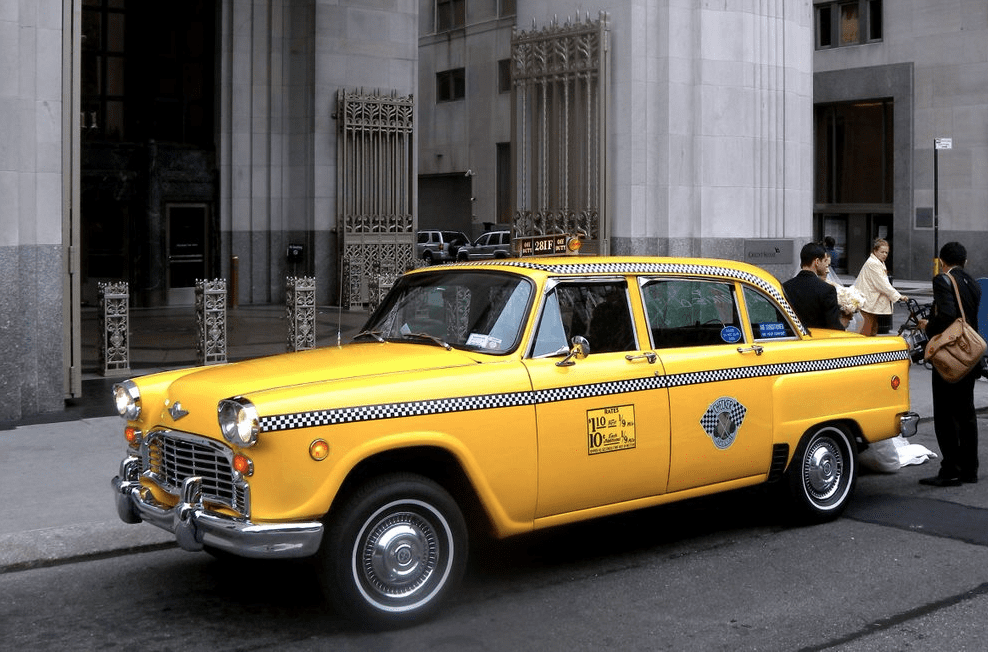Howard Fischer
Uppsala, Sweden
“I was bound by an oath that I took.”
—Doctor Cabbie

Doctor Cabbie (2014) begins with Deepak V. Chopra (played by Vinay Virmani) reciting the Hippocratic Oath along with his graduating class from the University of New Delhi. The face of this newly-minted doctor is glowing with joy. He has fulfilled his own dream and that of his late father, a highly respected physician. Deepak and his mother fly to Canada, sponsored by his uncle, a restaurateur (“the Korma Sutra”) living in Toronto. The reception from an indifferent immigration officer in Toronto is an indication that all will not be well in Canada. “Welcome to Canada,” she says without emotion in her voice or on her face.
Deepak sends out employment requests and gets job interviews, at which he is told that he needs a Canadian medical residency (which he has not been offered), that Canada cannot “evaluate the credentials” of graduates of every medical school in the world. One interviewer suggests he switch careers and become a nurse. After a short, clumsy stint waiting tables in his uncle’s restaurant, he is talked into driving a cab by an Indian cab driver he meets. He applies at a taxi company and is told, “We have more PhDs here than Harvard.” He gets the job.
A pregnant lawyer in his cab goes into labor. The taxi is stuck in heavy traffic in a downpour, and Deepak delivers the baby. Deepak’s cabbie colleague, who was in the front seat, has filmed part of the delivery—though he was warned not to—and puts it on the internet, where it “goes viral.” People start calling the cab company, asking to see “Dr. Cabbie.” He learns from his passengers that their insurance will not pay for certain needed medications, and that there is a six-month wait for a mammogram. He begins examining, diagnosing, and treating patients in his cab. He gives injections, runs electrocardiograms, and dispenses medication. He does not charge for his services.
At the same time, he has fallen in love with the woman whose baby he delivered and resuscitated. He had seen this woman, Natalie Wilman (played by Adrianne Palicki), before. Though a lawyer, she was working in a coffee shop because her career had been sabotaged by the baby’s father, a wealthy, sleazy candidate for the mayoralty of Toronto. She has fallen in love with the naive, charming Deepak.
One night, while driving over a bridge, Deepak sees a young woman poised to jump. She tells him that she is pregnant and Muslim. He talks her down, gives her some tranquilizers, and makes her promise to tell her parents. However, they are ashamed about the pregnancy, and she takes all the medicine in a suicide attempt, which is unsuccessful.
Soon after, at an elaborate Bollywood-style birthday party for Deepak, the police arrive, arrest him, and take him away. At his trial for “impersonating a doctor” and “dispensing controlled substances without a license,” patients testify as to his correct diagnoses (as verified in emergency departments or by specialists later seen by the patients). Natalie is his lawyer. He admits to his breaking the law, but says, “Had I not done so, I would have betrayed my profession.”
He is found guilty of the controlled substance charge. In the two hours between the guilty verdict and the sentencing, Natalie and Deepak get married. They love each other, and his marriage to a Canadian citizen might enter into the judge’s decision regarding the sentence. He is sentenced to 500 hours of community service and will not be deported. Two years later, he is a resident in a hospital in Toronto, and Natalie is pregnant with her second child.
This movie is clearly a fantasy. Someone smart enough to graduate from medical school would have researched the details about how an immigrant may practice medicine in Canada. It is really not possible, nor sensible, to use a taxi, even a big, old Checker “Marathon” as a doctor’s office. The film’s star and co-writer Virmani had ridden with an Indian doctor who was driving a taxi in Toronto. Of Canada’s 50,000 taxi drivers, immigrants are overrepresented.1
The film received “generally positive responses from the critics.”2 One critic, however, wrote that “this nonsense wasn’t worth the fare,”3 and another, somewhat more accurately, wrote that it was a “movie with a meaningful message that fails to deliver its potential.”4 But when understood as fiction, one can admit that the acting is good and the movie entertaining with its physical comedy, plays-on-words, humor, love, music, and gentle core. It is not difficult to suspend one’s disbelief for 104 minutes and enjoy the show.
A television series is planned.5
References
- Bruce DeMara. “The cab ride that gave birth to Dr. Cabbie,” Toronto Star, 18 September 2014.
- “Dr. Cabbie.” Wikiwand.
- Mike McCahill. “Dr. Cabbie review: Crude comedy of educated Indians abroad,” Guardian, 27 November 2014.
- Sean Tepper. “Dr. Cabbie: Rom-com suffering from an identity crisis,” The Globe and Mail, 19 September 2014.
- Vancouverdesi.com. “IndoCanadian comedy Dr. Cabbie making its way to small screen,” Hindustan Times, 8 September 2022.
HOWARD FISCHER, M.D., was a professor of pediatrics at Wayne State University School of Medicine, Detroit, Michigan.
